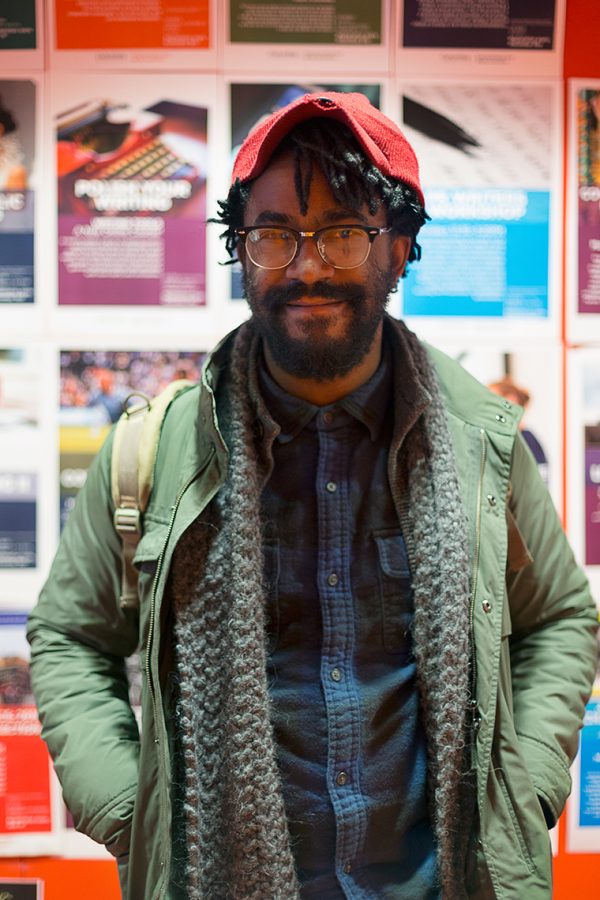Alumnus awarded prestigious grant for police data collection
Darryl Holliday joined the Citizens Police Data Project, which focuses on collecting and translating police documents, in August 2015.
February 8, 2016
2011 journalism alumnus Darryl Holliday and his Citizen’s Police Data Project team won a $400,000 grant Jan. 26 from the Knight Foundation and the creators of the Knight News Challenge.
The grant will fund the Citizens Police Data Project, which is focused on collecting and decoding police documents to provide a new transparency model for the city.
The plan, a product of the Invisible Institute partnership with the University of Chicago Law School and Mandel Legal Aid Clinic, also focuses on uncovering misconduct and filing lawsuits to facilitate the city’s information disclosure.
“The goal is to increasingly make these tools and information not just public, but accessible and usable,” Holliday said.
Decoding police documents from the Chicago Police Department and the Independent Police Review Authority is no easy task, Holliday said. Before making the information usable and readable for journalists and the general public, he and his five team members work hard to translate it.
“[The information] looks like a lot of numbers, and they don’t tell you anything,” Holliday said. “You need a key. You need to know what certain terms mean.”
Holliday said his two years working as a metro reporter for The Chronicle and the college’s journalism faculty prepared him to co-run the City Bureau of Illustrated Press, a multimedia project that tells non-fiction stories through comic illustration, and to become the Citizens Police Data Project producer.
“Most of what I’m doing can be traced back to the time spent at The Chronicle,” Holliday said. “Bringing in professors who are working journalists while they’re teaching is invaluable.”
Suzanne McBride, interim chair of the Communication and Media Innovation Department, said she was thrilled to learn that Holliday won one of the largest, most prestigious grants the Knight Foundation awards.
“[The project] underscores the kind of issue we want and hope our students and alumni focus on,” McBride said. “We want stories of all kinds to be told. We want our graduates to be the storytellers of tomorrow, and Darryl certainly fits into that mold.”
The application for the grant became available Sept. 8, 2015, and applicants had until Sept. 30, 2015, to file their submissions, which a team of independent reviewers and the foundation then analyzedfor two months.
Nina Zenni, a program associate with the Knight Foundation’s Media Innovation Team, said the project won the news challenge grant because it uses digital media and data to empower communities and strengthen democracies. Zenni also said the foundation received 1,065 applications in 2015, the most applications it has received since they launched the Knight News Challenge in the fall of 2006. The central focus of the challenge was data and how people can use, learn from and unlock it to create better information, Zenni said.
The project also aims to use the grant to expand and develop a database with new records and a fellowship program that would bring together experienced journalists interested in reporting on police issues in Chicago. Part of these funds would be allocated to cover members’ salaries and housing, Holliday said.
Holliday said he wants to see more journalists turn to databases to gather information and begin building a database network.
“There’s no way we could have foreseen how chaotic and deep the policing issues [in Chicago] would run right now,” Holliday said. “The database came at a time when people were ready and demanding information.”








